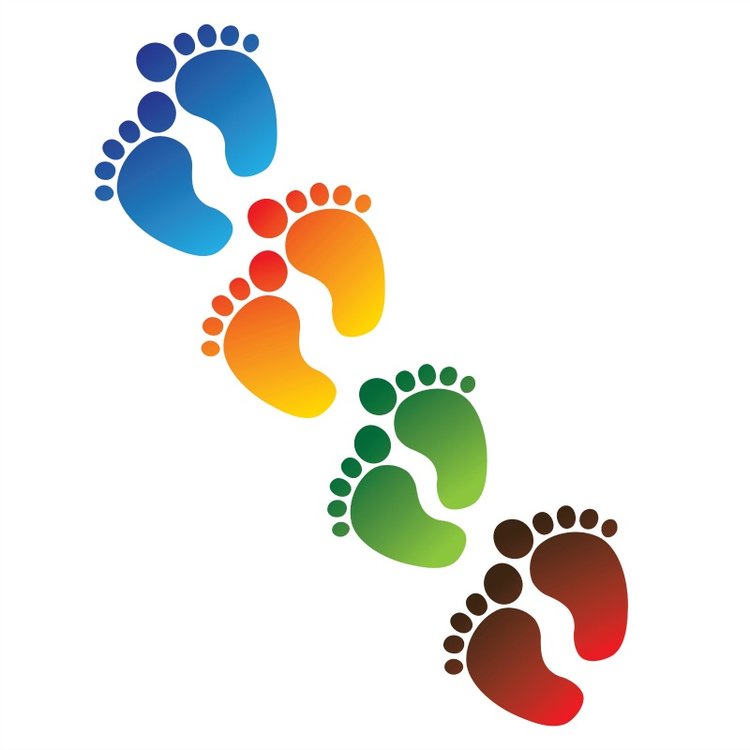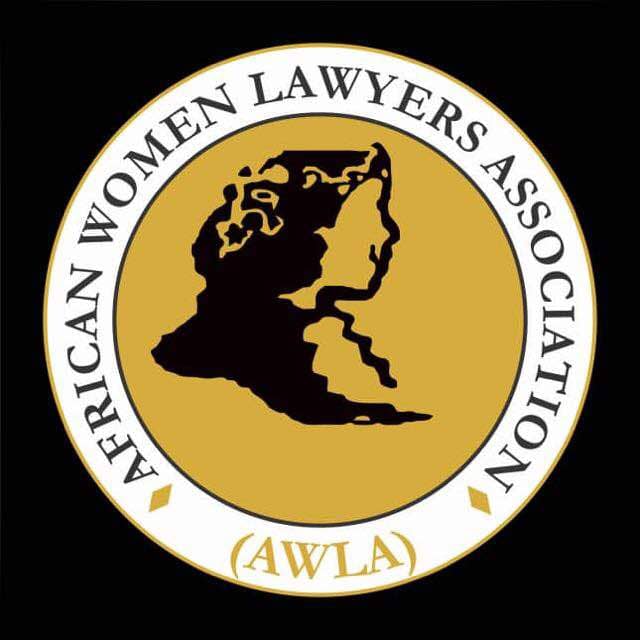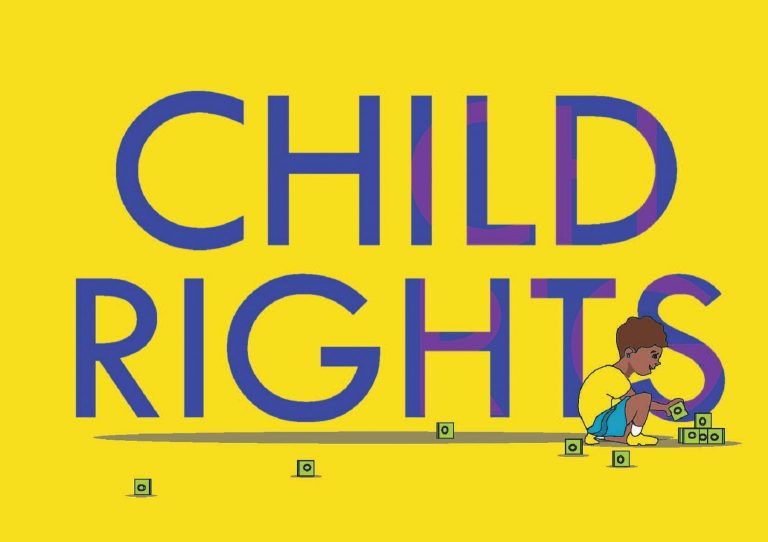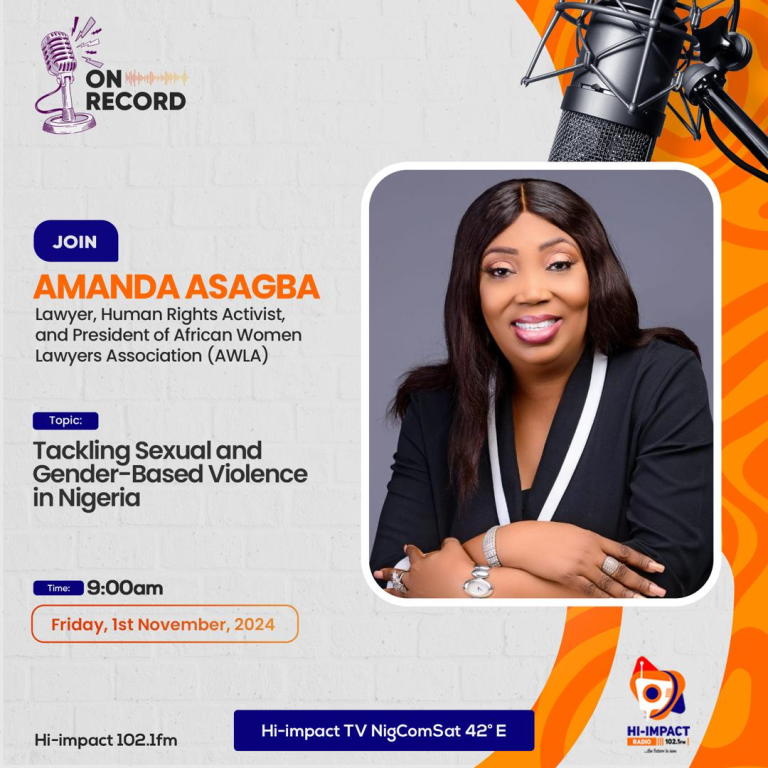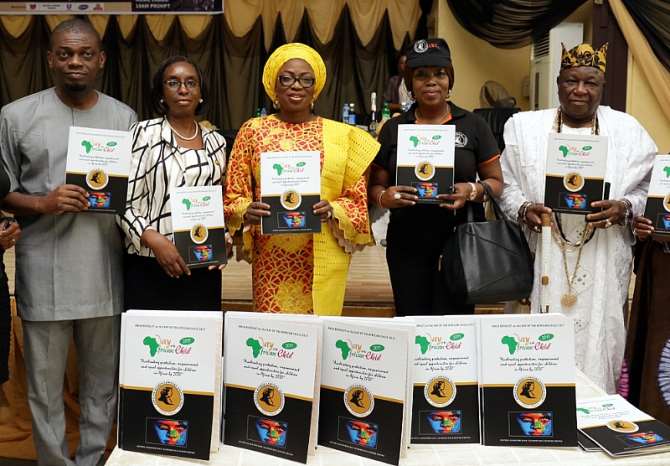Advancing Women and Children’s Rights in Africa: Issues, Legal Framework and Solutions by Mandy Demechi-Asagba
Introduction
Basically, human rights are universal rights which belong equally to all people as human beings. Under all national, regional and international laws, there is equality and protection of humanity. However, women and children rights are mostly marginalized and easily violated indicating they fall into vulnerable groups. As a result they encounter more challenges which are endless and these issues have raised serious concerns that must be addressed by the available legal framework such as the African Charter which has been ratified by all African States; Convention of Elimination of All Forms of Discrimination Against Women (CEDAW) 1979, Maputo Protocol, ECOWAS Treaty, Declaration on the Protection of Women and Children Emergency in Armed Conflict, Charter on the Rights and Welfare of the Child which evidently have their roots in international instruments.
In the light of these issues, this paper will attempt to highlight the challenges, the mechanism of the legal framework and identify the limitations and thereafter conclude with sustainable recommendations for the protection of women and children rights.
Challenges of the African Children
Evidently, the never-ending challenges of the African glaringly confronting the African child in the past years gone by have been massive. Examples are – The impending famine, incessant use of children as suicide bombers and issues facing the internally displaced children in Northern Nigeria; The plight of the visibly-pregnant girls in Sierra Leone; The gruesome murder of albino children in Tanzania; The conscription of child-soldiers in Somalia; The outbreak of meningitis on Nigerian children; The death of some children in South Sudan caused by contaminated measles vaccine; The stunted growth of children in Burundi; The constitutional exclusion of Malawian children aged between 16-18 as children (now amended); The impact of environmental pollution on children in the Niger-Delta region of Nigeria; The hungry Syrian children and the escalating conflict in South Sudan where over one million children have fled their country. Other challenges facing African children are visible in the cultural and religious sphere.
There are issues bordering on child sex trafficking, malnutrition, early marriage, abduction, kidnapping, sexual assault or violence, cyber violence, child labour, lack of quality healthcare and lack of quality education. Other impediments are poverty, corruption and lack of political will by African governments to implement and enforce child rights protection laws in their respective countries. In 2010, the Akwa Ibom State Government in Nigeria set up a ‘Judicial Commission of Inquiry into Witchcraft Accusations and Child Abuses’ to address allegations of children being accused wrongly of witchcraft. There is also the notorious culture off using their daughters as collateral for loans
Challenges of African Women
Major challenge confronting African women has to do with gender-based violence (GBV) and Sexual Exploitation and Abuse (SEA) which affects women and girls of all social-economic backgrounds. The issue needs to be addressed in Africa. Our focus should be on GBV prevention, mitigation, and eradication as well as research before this terror (child defilement and molestation)unleashed on the girl child consumes all. Africa needs to strengthen its institutional efforts to address GBV and Gender rights Sexual exploitation and Abuse (SEA). According to UN report, 35% of women worldwide have experienced either physical and or sexual intimate partner violence.
Many women have been killed while adult women account for 51% of all women trafficking for the purpose of sexual exploitation. Child marriage is prevalent in West and Central Africa. Other crimes that women encounter are: female genital mutilation, women victimization, sexual assault, cyber-harassment, street -based sexual harassment. There is also no gender equality in governance because women are generally seen as weaker vessels.
African Legal Framework
The major instruments on Human Rights in Africa are:
i. The African Charter on Human and People’s Rights 1981
The African Charter contains provisions relating to women’s rights which prohibit discrimination on grounds of sex. See Articles 2, 18 and 17. It should however be noted that the peoples’ rights guaranteed in the Charter apply equally to both men and women, because States are required to guarantee equal protection for all their citizens without any distinction of any kind.
ii. The African Charter on the Rights and Welfare of the Child 1990
The applicable regional child instrument is the African Charter on the Rights and Welfare of the Child (ACRWC) which takes into consideration even the sociological perspective of the African child:
• Economic Rights of the child- right against child labour because of the high prevalence of child beggars, child employed as domestic servants, child traders and hawkers.
• Social Rights-rights to education, health, and family, relations, adoption and fostering
• Cultural Rights denounces harmful cultural practices and early marriages
• Civil and political Rights-right to life, dignity, liberty and privacy, religion, free expression
• More importantly, member states shall uphold the best interests of the child at all times including
the rights of Handicapped children and Refugee Children. Finally , Governments shall undertake to ensure that all African children are protected by Law.
iii. The Protocol to the African Charter on Human and People’s Rights on the Rights of Women in Africa also known as the Maputo Protocol of 2003.
The Maputo Protocol defines “Violence against Women” as all acts perpetrated in private or public against women which cause or could cause them physical, sexual, psychological and economic harm including the threat to take such acts. The Maputo Protocol further provides that women are entitled to Right of dignity, Right to life, integrity and security, elimination of harmful practices and discrimination, Equal rights, Access to Justice, Right to peace, Right to participation in politics, Protection of women in Armed conflict, Right to education and training, Economic and Social Welfare Rights, Healthcare, food security, housing, sustainable environment and development, Right to inheritance, Special protection for Windows, Elderly Women, Women living with disabilities and Women in Distress. Article 27 and 32 provides that the African Court on Human and Peoples’ Right shall interpret the implementation of this protocol and the African Commission on Human and peoples’ Right.
With respect to compliance and enforcement process, this Charter and the rules of the Commission permit NGOs or individuals to send complaints of breaches of rights protected under the Charter and its protocols, to the Commission where these complaints are usually considered at its ordinary sessions. In turn the Commission will also forward to the governments concerned, the allegations made and possible dialogue for redress.
Generally the reasons for adopting these treaties was that Africa and African values were under represented and so not reflected. But judging from the exposition of the laws, one can conclude that African legal frameworks are women and children’s rights-driven because they took cognizance of our African values and positive values. Clearly, what we should note is that majority of the African States have ratified the Charters which goes beyond other provisions set out anywhere else. These frameworks reflect our culture and take care of everyone. For example, if a child’s right is infringed upon and there is no local remedy, one can approach the Committee of Experts to make recommendation or approach the ECOWAS Court because Nigeria is a member of ECOWAS. Thankfully, Africa is said to be the only continent with a region-specific child rights instrument.
Institutional Framework
No doubt, the AU has set up instruments to protect women and children. The African regional mechanism, like other regional systems in America or European systems, complements the human rights system of the United Nations. African women and Children whose rights have been infringed can access justice through:
- The African Commission on Human and People’s Rights founded in 1987
- The African Court on Human and People’s Rights founded in 2004
- The African Committee of Experts on the Rights and Welfare of the Children 2001
- The ECOWAS Court founded in 2001
- Under Article 18 (3) of the African Charter, Women and Children’s rights are enforceable. The Article provides that states shall ensure the elimination of every discrimination against women and also ensure the protection of the rights of the women and the child as stipulated in international declaration and conventions. This explains why municipal courts in many African countries rely on international instruments as they are accorded an important reference points under articles 60 and 61 of the African Charter. In APDF & IHRDA v. Republic of Mali (App. No. )46.2016, 2018), the African Court in its first judgment on women’s rights ruled that the 2011 Family Code of Mali violates the Maputo Protocol and ACRWC which establish the minimum age of marriage for females to be 18.
Limitations to the African Framework
The most pertinent question we should ask ourselves here is: Are the existing African legal and institutional frameworks robust enough to respond to the challenges of women and children just like their western counterparts? Undoubtedly, African Countries have equally subscribed to international instruments such as Universal Declaration of Human Rights(UDHR) 1948, International Covenant on Economic, Social and Cultural Rights (ICESCR) 1966, International Covenant on Civil and Political Rights (ICCPR)1966; Convention of Elimination of All Forms of Discrimination Against Women (CEDAW) 1979, Declaration on the Elimination of Violence Against Women 1993; Declaration on the Protection of Women and Children in Emergency and Armed Conflict 1974 and several other governing laws on women’s rights internationally for all the state parties that have ratified the convention, which literatures are obviously concentrated on western perception indicating a global context, there are still several obstacles which African laws have failed to address. These include:
• The customary laws of African countries are not uniform. Different legislations obtain in West Africa, North Africa, Middle East Africa, Central Africa and Southern Africa.
• The negative representation of African customs and traditions in the face of the world such as many cultural prejudices and practices – a pointer to the fact that African legal framework has failed to redirect cultural practices for positive change.
• African women and children are not enjoying same rights as the western women and children. For example, many artistic depiction of the African woman till today still portray her as carrying water vessel on her head and strapping a child to her back while the African child is pictured as being malnourished, sad and less assertive. This depicts that our children and women are not in tune with the global world.
• African governments have not created enabling environment to align these rights with international standards. Most of these rights are regarded as justiciable rights. Rural women cannot therefore access certain infrastructures like school, technology, health and etc. Persecution or abuse of the rights of women and children therefore continue without a remedy.
• On juvenile justice rights, when children commit crimes, what workable and uniform corrective orders are put in place for African Children?
• Decisions of the African Commission and African Court are largely undermined by African governments. This is due to the doctrine of sovereignty which renders the African justice institutions powerless. So we ask, do these institutions truly have enforcement powers to sanction countries that breach regional laws on women and children rights? Sadly, where African governments refuse to implement the Commission’s rulings, the available option is to fall back on our national laws.
• Bad governance, corruption and insensitivity also hinder taking decisive action to enforce these rights.
Moving Forward
African legal framework has an important role to play in achieving a viable rights-based objectives geared to guaranteeing peace and human dignity for women and children. Irrespective of external influences, our African identity is part of our make-up. Moving forward means it is time to change the narrative and dialogue about women and children so we can truly build the true African continent that we all crave for. It also means African women and children should be given the platform to align with the objectives of the Sustainable Development Goals which purpose is that women and girls should not be left behind. Certainly, if women and children are deprived of their rights, there will be no peace and progress in the continent.
Knowing fully well the implications where women and children’s rights are violated, all stakeholders must continue to pressurize African governments to respect their regional laws because they are obligations and responsibilities placed on them by virtue of ratification of the covenant and or treaties and protocols, especially if their domestic framework is a failure. This calls for continued advocacy so that governments can take all legislative, administrative and judicial steps to ensure that provisions of treaties are implemented locally.
There is no other alternative to it. African governments must respect obligations. For instance, the obligation of Nigeria was referred to, in the case of Mojekwu v. Ejikeme (2000) 5 NWLR (Pt.656) 402 CA where it was held that Nigeria should respect its obligations under CEDAW. In CRP v. Nigeria (1998) ACHPR 2, the African Commission held that Nigeria should respect its obligations. This is because, by virtue of Section 12 of the 1999 Constitution once a treaty has become domesticated, it becomes a law in Nigeria and therefore binding. See: Abacha v. Fawehinmi (2001) 6 NWLR (Pt. 660) 228.
To this end, there is need for synergy between African legal framework international declarations and National Laws of each African country. We should not also forget the role of African lawyers who should act as instrument of change to advance women and children rights in the continent. The battle should not be left for women lawyers alone, rather all hands must be on deck to ensure we protect and promote the rights and interests of women and children in Africa.
Conclusion
The subject of discourse in this paper has highlighted the challenges confronting African women and children while identifying the regional legal and institutional framework as well as the limitations involved. It is hoped that African governments will take decisive action to use the instrumentality of all the laws to advance the rights of women and children in Africa. The legal and institutional framework should not be a ‘toothless bulldog’ rather we need commitment and political will to implement the laws. The time to unsettle the settled norms has come: African Woman, Arise and Occupy your Space. We need to test these laws of which many are just for the time being decorating our law books. YES beautiful laws, we must make their applicability beautiful too through implementation without which they are nothing but dead laws. Just as judgement without enforcement is as bad as injustice. Implementation is the fuel for Justice! I believe strongly that there must be sanctions for non enforcement of court judgments whether National, Regional or International. It must not be left to the whims and caprices of the power that be. Otherwise there is no Law. Any judgement subject to executive discretion to obey or not to obey is inconsistent with the provision of the constitution. And will to the extent of that inconsistency be null and void. We must have Zero tolerance for Executive impunity and lawlessness.
References
2019 Edition of the Day of the African Child Booklet (AWLA Publications Nigeria)
Cases and Materials on Women’s Rights Law by Funmi Falana ( 2008 Legal Text Publishing
Nigeria)
Domestic Violence Zero Tolerance Report on Network of Nigeria Men Against Domestic
Violence (2003 LEDAP PROJECT 2003)
A Synthesis of African Law by Akin Ibidapo-Obe (2005 Concept Publications Limited)
Corruption and Human RightsLaw in Africa by Kolawole Olaniyan (2014 Hart Publishing)
www.unwomen.org
This paper was delivered at the ongoing African Bar Association Conference 2019 holding in Monrovia, Liberia


